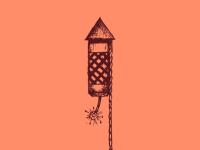Making Those New Year’s Resolutions Stick
The best New Year’s resolutions result in improved student learning. Whether introducing new pedagogy or starting student blogs, take small steps and don’t fear failure.
Your content has been saved!
Go to My Saved Content.It's that time of year again when people around the world are making pledges to be different in the New Year. Teachers aren't exempt from this habit, but it can be hard for us to decide exactly what we should focus on for the coming year. I've narrowed down some suggestions that could be worth exploring for your New Year's resolution -- and some tips on how to make sure you stick to them.
What to choose?
Here are some interesting things to consider that could make an impact in your classroom in the New Year.
Project-Based Learning
If you are not familiar with project-based learning (PBL), it is a type of instruction that has students deal with real-world situations and reach their own conclusions based on the work they complete. It's not just having students work in groups to complete a poster board. PBL is a great concept for teachers looking to change the instructional focus of their classroom. Instead of the teacher telling the students everything they need to know about a subject, students are given the opportunity to explore the concepts on their own and share what they learn with the class.
Universal Design for Learning
Universal Design for Learning (UDL) is another educational approach that allows students many different avenues for learning. CAST.org says:
Instead of creating rigid assignments that all students have to follow regardless of their skill set, UDL says that assignments should be created to allow for flexibility so that students can explore learning in different ways and express it in a way that is best for them. It's an interesting strategy that I have used in my class, and I've seen students enjoy this approach to learning.
Blogging
I will always encourage people to start blogging. It's the New Year's resolution that started my website and has helped me become a better teacher and learner. Blogging is a great way for teachers to reflect on their teaching over the course of a school year. It provides a space that is personal, but can be shared publicly to gather feedback on instructional practices. I cannot imagine my life as an educator without writing blog posts and reading the blog posts of other educators. Starting a blog is simple, free, and a great way to truly think about what we do in the classroom.
Student blogging is also a great thing to get started. Giving students a space to write is important if we want our kids to be better readers and writers. Have them blog once a month or every other week. Blogging is nice because the students can really write whenever they want, and giving them a digital space can be very powerful. There are many sites with writing prompts to spark their imagination. For example, the hilarious and interesting Visual Writing Prompts is sure to get them writing. Having students blog is a great way to keep yourself blogging, because modeling for students in always important.
New Year's Resolution Tips
1. Do not try to do it all.
The worst thing is trying to keep too many different resolutions at once. Pick one and really plan out what you want to do and how you'll do it. The school year is a busy time, and we're already trying to do it all. Adding four or five new things will only lead to failure. Choose one that's really important to you and go for it.
2. Connect with others for support.
Don't try tackling something new all by yourself. There are great communities on social media (you're in one right now!) that have tons of excellent resources for teachers who are trying new things in the classroom. Never feel like you have to go it alone with your resolution.
3. Take your time and start small.
If you choose a change in pedagogy, don't try to make a wholesale change of everything you do right away. Start with one lesson here and another lesson there. You need to see if these changes work and if they are what's best for your students. If it works, add more. If it's not working, reflect and consider changing your approach.
4. Do not fear failure.
There's always a chance that the new things you want to try aren't going to work out the way that you hoped. That's OK. The most important things to learn from failure are why it happened and how you can benefit from it. Constantly reflect on your practice and strive to be better. If you do this, failure will never be a problem.
Changing the way we do things in the classroom is always a scary process. It's a big risk to try something new at a time when teachers feel scared of punitive evaluation models, and not all teachers are comfortable with that risk. However, if we want to be better at our jobs and reach as many students as possible, we have to try doing things differently. Edutopia has many other ideas on their website that are worth exploring if my suggestions haven't tickled your fancy. Give them a look and see what's best for you. And have a happy New Year!
